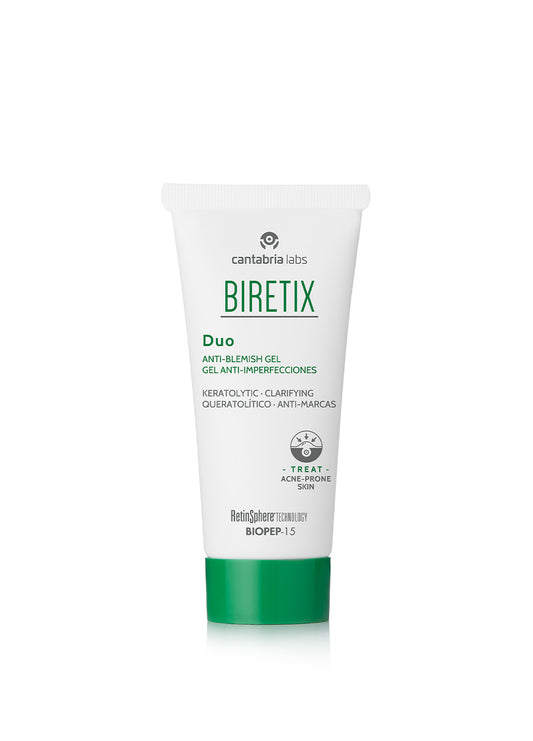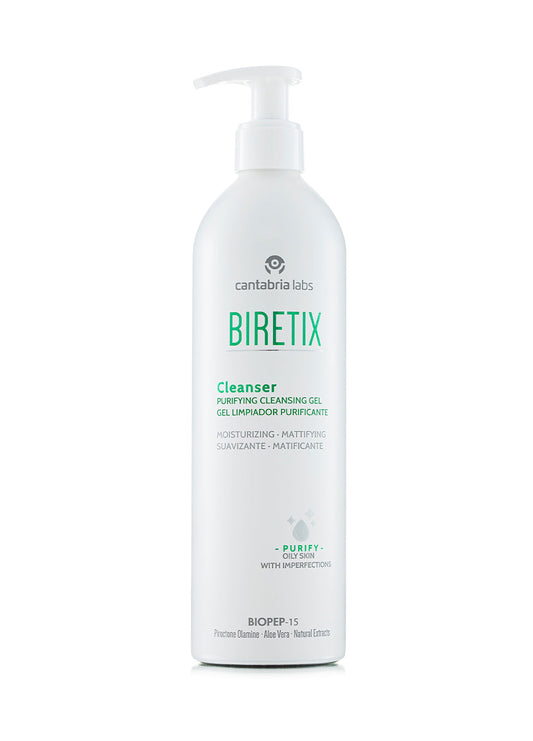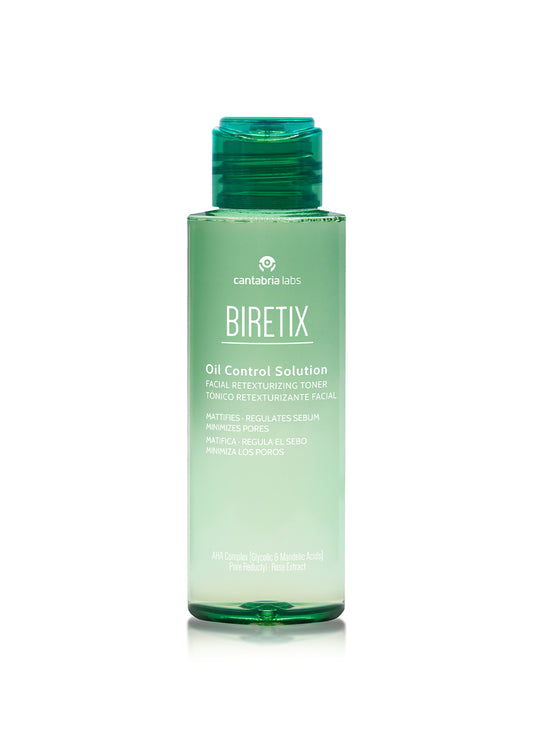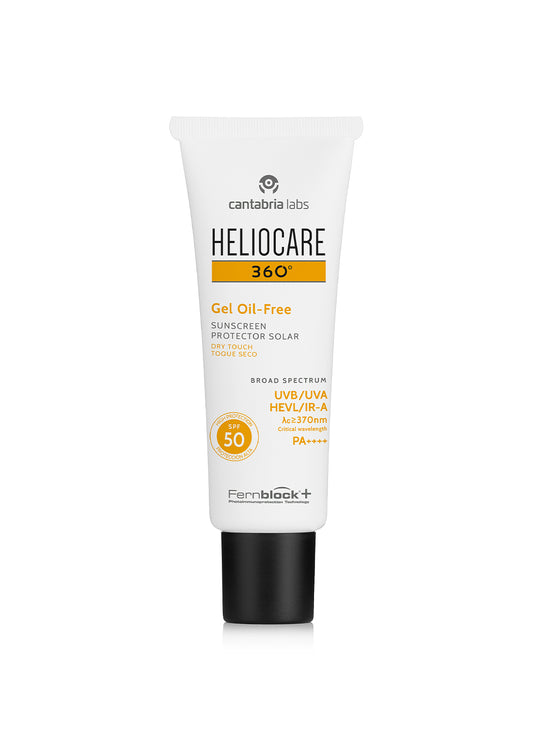Top products & skin care options for oily skin
Published on 17 October 2024
Oily skin is caused by an overproduction of natural oil within the skin which can leave you with a shiny complexion that can be more prone to spots. Here we’re sharing top tips for oily skin treatment, the best skincare routine for oily skin and the reasons why you have oily skin in the first place.
What is oily skin?
Oily skin is caused by an overproduction of sebum in the skin. Sebum, secreted from hair follicles in our skin, helps to keep our skin hydrated and protects the skin too. When we have too much sebum it can leave the skin looking shiny and feeling greasy. Oily skin is often characterised with enlarged pores and can be prone to breakouts.
Spots and breakouts are caused when sebum and dead skin cells block pores and bacteria builds beneath the surface, but don’t worry, we’ll cover spot treatments for oily skin in this article too!
How do I know I have oily skin?
Establishing your skin type is essential in helping you to identify which products (skincare and makeup) work best with your skin. If you have oily skin, you’ll notice that your skin has a persistent sheen to it, even immediately after washing, and will feel oily to the touch. You may find that you have regular breakouts and enlarged pores too.
What causes oily skin?
There are several factors beyond our control that cause oily skin, but there are some things that exacerbate it where we can make simple changes to make big improvements:
Skincare overload: Using too many or too harsh skincare products can disrupt the skin barrier and cause an overproduction of sebum, even using a cleaner for oily skin can be a big step in changing up your skincare regime.
Hormonal changes: Hormones are responsible for the stimulation and regulation of sebum protection.
Stress: During times of stress we produce more cortisol, the stress hormone, which can stimulate our sebum production.
Medication: Medication that affects our hormones in particular can indirectly cause oily skin.
Genetics: Oily skin can run in the family, it’s not always the case, but it can be inherited.
Oily skin treatments and tips
So, you’ve established that you have oily skin, and may have identified why… but what can you do to help manage it? Identifying the right products, sticking to a skincare regime for oily skin and picking up some new good skin habits will make all the difference. Let’s dig in a little deeper.
Find a cleanser for oily skin
Cleanse morning and night with a cleanser that’s specifically designed for oily skin that will also help to reduce breakouts. Finding a gentle cleanser that won’t strip the skin, but that contains sebum regulating ingredients is a great start. Combining that with a toner to remove any remaining oil, and further control oil production will enhance your daily regime. Look for active ingredients like glycolic and mandelic acid, and ingredients like agaric acid to help shrink pores. We recommend:
Always remove makeup before bed
If you leave makeup on overnight the remaining product can mix with the sebum in the skin, and debris from the day and clog your pores. This can lead to a buildup of bacteria within the skin and cause breakouts.
Leaving makeup on the skin can also lead to skin irritation, impair your skin barrier and generally harm the health of your skin.
Use products specifically for oily skin
Oily skin treatment products are designed specifically to be non-comedogenic (not to clog pores) and are often oil free. They’ll also combine ingredients that help to regulate your oil production and increase skin cell turnover to ensure your pores are reduced in size and remain unblocked, so it’ll be less likely that you breakout in spots.
Look for ingredients like salicylic acid and retinol, and ingredients that fight bacteria like Biretix’s revolutionary BIOPEP-15. Niacinamide is a great oil-regulating ingredient and also helps to protect your skin health and brighten the complexion. We recommend:
Moisturise
Although it can feel counterintuitive, NOT using a moisturiser and trying to dry your skin out will actually stimulate the skin to produce more oil. Instead, find a moisturiser for oily skin that’s lightweight and doesn’t leave residue on the skin. Make sure to use this morning and night to keep your skin hydrated and keep the oil at bay. We recommend:
Avoid touching your skin
When you have oily skin you may feel the need to keep wiping and blotting the oil away. Try to avoid this - you can actually cause breakouts by clogging your pores and causing bacteria. Make sure that anything you use on your face - towels, makeup brushes etc - are washed regularly for the same reason.
Use products with oil-regulating ingredients
Oily skin treatments products are not only formulated without oil, many of them have ingredients to regulate sebum production and reduce the amount of oil on the skin. Look out for: salicylic acid, niacinamide, agaric acid, algae extract and green/white clay.
Use sunscreen every day
Pore-clogging and greasy sunscreen is a thing of the past. While many have found that using facial sun protection causes breakouts, more recent products and technologies have meant that those with oily or spot prone skin can enjoy high levels of daily protection without the fear of breakouts. Not only is daily sun protection essential in maintaining healthy skin (yes, even on rainy days in the UK), it’s even more important when you’re using active ingredients in your skincare routine for oily skin such as AHAs and retinol, which can sensitise the skin to sun damage. We recommend:
Don’t over-exfoliate
Exfoliation and increasing skin cell turnover is great in helping to improve the appearance of oily skin, shrink pores and reduce lines and wrinkles. Over-exfoliation however, can have the opposite effect, damaging the barrier, irritating the skin and leaving it severely dehydrated. Less is more with exfoliation. Build up the use of chemical exfoliators (such as AHAs and retinol) over time to let the skin acclimatise. If you’re using a physical exfoliator or a more potent chemical exfoliator use this just once or twice a week.
In summary
You can’t always change the fact that you have oily skin, but there are lots of skincare habits and products that you can use to help manage it on a daily basis. Don’t forget, skin that is more oily tends to wrinkle less due to the level of moisture in the skin - so every cloud has a silver lining!









